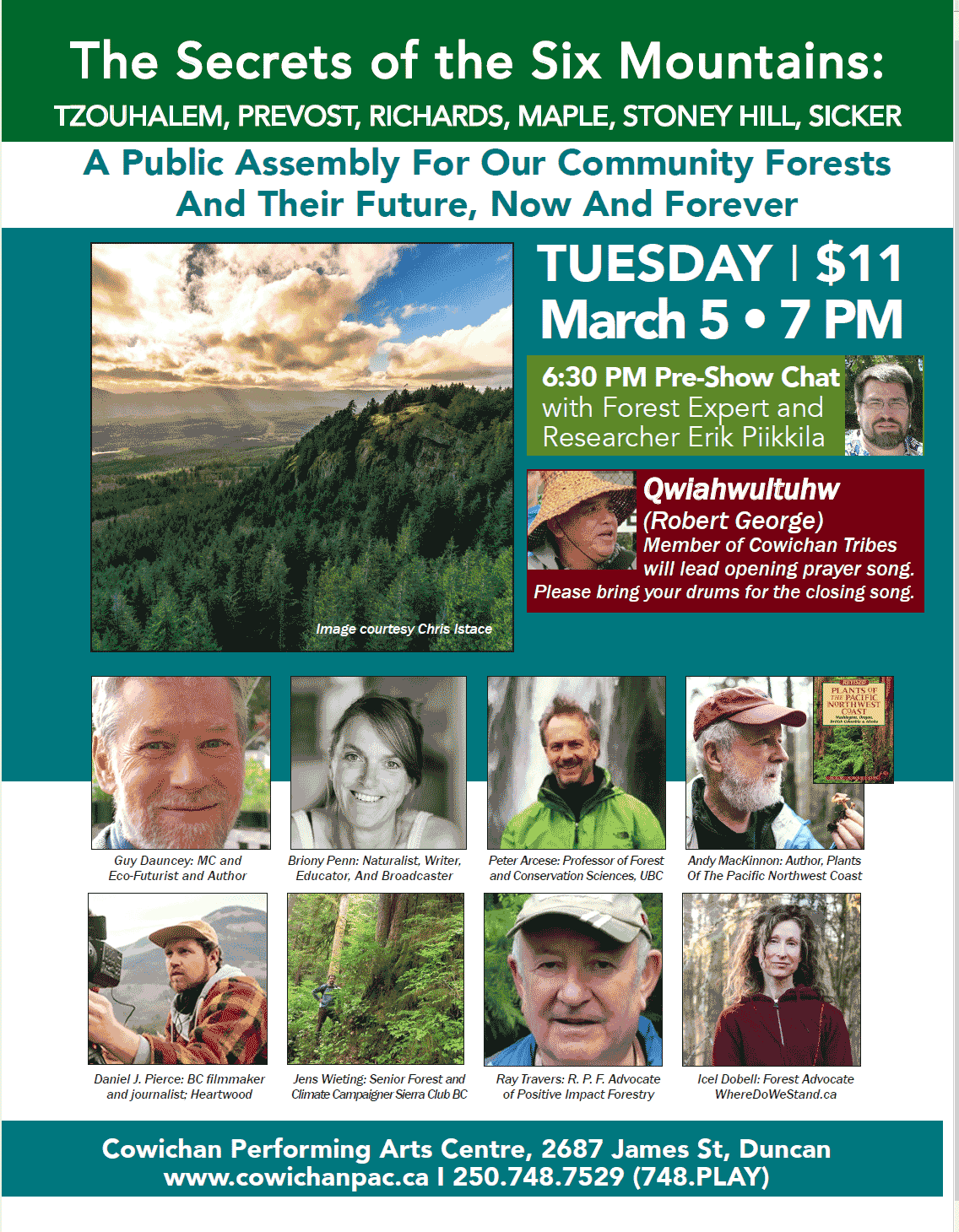The North Cowichan Council has heard the public request for pause and public consultation when it comes to logging in our community forests.
According to the advocacy group, Where Do We Stand, they have responded with a commitment to public consultation, input, openness, collaboration, accountability, and transparency.
Group member Icel Dobell said now it’s up to the citizens of North Cowichan, to support Council, staff, and the newly reconfigured Forest Advisory Committee by staying involved and informed, and to that end the public is invited to a public assembly Tuesday at the Performing Arts Centre.
Dobell said well known experts on the forests will share their knowledge and experience to help our community identify the range of opportunities that exist to shape the ecological, economic and social futures of our six forests.
Tickets to the event cost 11 dollars.
Doors open at 6:30 and begin with a pre-show with a Forest Ecologist and Historian.






